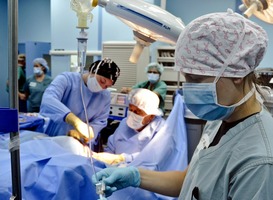Healthcare has reached a tipping point, the Dutch Health Authority (NZa) warned in its annual report The state of care. “People are no longer always getting the care they need,” writes NZa board chair Marian Kaljouw. This brings back the support of ANP experts.
The fact that there is a care gap is also related to limited health skills. These are the skills people need to find, understand, evaluate and apply information when making decisions about their health.
On average, 1 in 4 people in the Netherlands suffer from it. Among other things, they have difficulty evaluating food labels, understanding instructions for a planned medical examination, and reading a population screening call. Information does not reach them or is not well understood. It is difficult for them to make the right choice. As a result, people with limited health literacy often have poorer health.
Pharmaceutical companies
It is also important that pharmaceutical companies have health literacy on their radar. Skills are required for the safe and effective use of drugs. With medicines, the correct dosage and schedule of intake are very strict. If a drug is dosed too high, too low or no dose at all, the drug’s effect will not be (partially) achieved and could even lead to dangerous situations. The same goes for not following the advice that applies to the medicine. Think about using it in combination with alcohol or during pregnancy.
Edited by: National Care Guide


